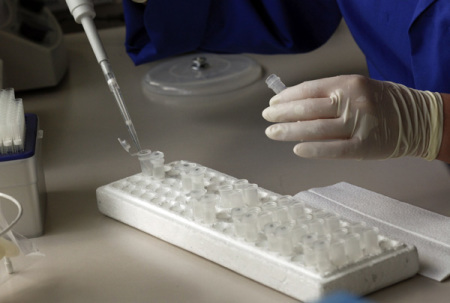'3-Parent Babies' Hit 15-Y-O; Researchers to Examine Current Health of Lab-Created Embryos

A new investigation will look into the well-being of 17 teenagers born in a New Jersey hospital 15 years ago that are believed to be the world's first group of individuals born using and advanced fertilization technique that utilizes a "three-parent" embryo to avoid the risk of passing on maternally inherited, life-threatening mitochondrial diseases. The findings of this investigation could be the key determination for the legalization of a similar procedure in the United Kingdom.
This in vitro fertilization (IVF) technique takes cytoplasm from a donor egg or embryo and is injected into an egg with compromised mitochondria to help produce a healthier egg and, in theory, a healthier person free of mitochondrial diseases.
Although the procedure, commonly known as cytoplasmic transfer, does not involve the transfer of nuclear DNA, the resulting children still inherit genetic material from three parents.
About 1,000 to 4,000 children are affected each year by mitochondrial diseases in the United States, according to The New York Times.
The technique was banned by the U.S. government in 2002 because of lack of pre-clinical data that ensured the technique's safety, but not before the technique was put to the test creating approximately 30 "three-parent babies" including 17 at the Saint Barnabas Medical Center in Livingston, New Jersey. Until now, there has never been a followup on these kids to see if there are any lasting health effects of child being born with genetic material from three parents.
The investigation that will be conducted by the Saint Barnabas Institute for Reproductive Medicine and Science, will be closely watched by United Kingdom's members of Parliament who are expected to vote on legalizing a similar procedure called "Mitochondrial Replacement," in early 2015.
Forty-five nations have considered legalizing germline modificaition, but none have permitted it becuase of the uncertainity of the long-term safety of the modifications. The U.S. Food and Drug Administration held a hearing in February and concluded that more animal testing is needed to permit testing of the techniques on humans.
Dr. Geoff Watts, a British scientific writer and broadcaster, said in an interview with CloseUpResearch.com, that it is imperative for the potential advancement of techniques like mitochondrial replacement and cytoplasmic transfers for resulting babies to be followed up for generations.
"If this technique is introduced, there should be a concerted effort to follow up," Watts said. "Not only the children that are born of this technique to find out if they really are as healthy as we hoped they would be, but also the children's children, and the children's children's children's children. In other words, to follow this down the generations. Normal follow up studies are difficult to do. Following up over decades is even harder."
It is unknown if any of the 17 teenagers born at Saint Barnabas Medical Center over 15 years ago are willing to go through with follow-up examinations to ensure their long-term safety. Professor Jo Poulton, a consultant in mitochondrial genetics at John Radcliffe Hospital in Oxford, however, noted that the teens have no obligation to cooperate with such followups.
"For an unborn child, when they get to the age of 16, they are in charge of their own destiny and nobody can make a child agree to carry on with this type of follow up," Poulton said. "They can be strongly advised that it is in there best interest, but nobody can force that child to do it."
Although the idea of "three-parent embryos" could possibly be an innovation of modern medicine toward preventing congenital mitochondrial diseases, opponents of the procedures claim that it could open the door to allow other genetic modifications and could ultimately lead to allowing "designer babies" and allowing parents to "play God."
David King, director of Human Genetics Alert, said that legalizing of "three-parent embryo" fertilization clinics will start a "slippery slope."
"Once you start modifying a child's genes, you are shaping them to your desires and your whims," King said. "The fundamental thing about being human is that your genetic essence has not been manipulated by other people to suit their desires. You are not an object to be manipulated, you are a person."





















